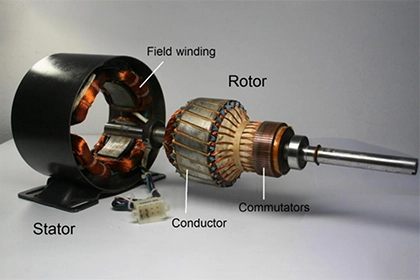
The Future of EV: Electrification in the automotive industry
Electric vehicles offer a clean and sustainable form of transportation. The auto industry is on the verge of a major shift to electrification as electric vehicles become more popular.
The automotive industry is undergoing major changes due to increasing environmental concerns and government regulations to reduce carbon emissions. The future of the automotive industry belongs to electric vehicles (EVs), which offer a clean and sustainable form of transportation. The automotive industry is on the verge of a major shift to electrification as EVs continue to grow in popularity.
The use of electric vehicles is expected to significantly reduce carbon emissions, air pollution, and dependence on fossil fuels. Electric vehicles use rechargeable batteries instead of traditional internal combustion engines (ICE), which convert stored electrical energy into mechanical energy to drive the vehicle. As technology advances, electric vehicles are becoming more efficient, have longer driving ranges, and take less time to recharge. In addition, the cost of electric vehicles is decreasing as battery technology improves and production volumes increase.
The impact of electric vehicles on the automotive industry
The growth of the electric vehicle market is expected to have a significant impact on the automotive industry. Many automakers are investing heavily in electric vehicle technology and developing new models to compete in the market. Some companies are even planning to completely phase out internal combustion engines in the next few years and focus solely on electric vehicles. Mitsubishi Motors, for example, said on Friday that they aim to electrify all of their vehicles sold worldwide by 2035, after setting a goal of electrifying 50 percent of their vehicles by 2030. In addition to Mitsubishi, Toyota has also set a goal of selling 3.5 million electric vehicles worldwide by 2030, and is also considering producing cars in Europe. At a launch event last month, Toyota's president, Koji Sato said he would further accelerate the development of electric vehicles. Governments around the world are also supporting the shift to electrification by providing incentives for electric vehicle adoption and investing in charging infrastructure, such as purchase rebates, tax exemptions and credits (tax credits (Tax credit), access to bus lanes, and exemptions from additional fees.
Advantages of Electric Vehicles
In addition to reducing carbon emissions, electric vehicles offer a number of other benefits over vehicles powered by internal combustion engines. For example, they are quieter, have fewer moving parts, and require less maintenance. They also offer instant torque, which provides fast acceleration and a smooth driving experience. With the development of autonomous driving technology, electric vehicles are also expected to play a key role in the future of transportation. While there are still challenges that need to be addressed, such as the availability of charging infrastructure and battery costs, the future of electric vehicles in the automotive industry is bright. As technology continues to advance and more consumers adopt electric vehicles, the automotive industry will continue to electrify and become more sustainable.
Conclusion
In short, the future of the automotive industry lies in electrification, and electric vehicles offer a low-carbon, environmentally friendly, and sustainable form of transportation. With the popularity of electric vehicles and government support for electrification, the automotive industry is on the cusp of a major shift to electric vehicles. While there are still challenges to be addressed, the future looks bright for the electric vehicle market and the automotive industry as a whole.



Leave a Comment